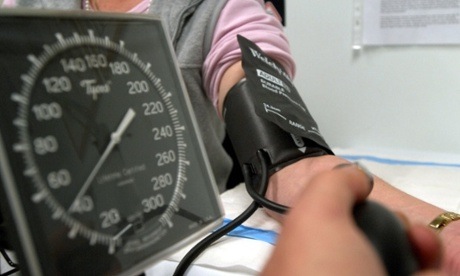
Tony Abbott has accused doctors’ groups of flip-flopping on the issue of short patient consultations, as Senate crossbenchers prepare to vote down Medicare changes due to take effect next week.
From Monday, general practitioners who conduct a consultation that lasts less than 10 minutes will receive a rebate cut of $20. Doctors say that cost will have to be passed on to patients.
The government did not need to legislate for the changes, but the Senate can pass a disallowance motion to stop it.
Abbott said the Australian Medical Association (AMA) had been inconsistent in its offensive against the policy. “Just a few months ago the AMA was saying they didn’t want to see six-minute medicine,” the prime minister said.
“They wanted to see doctors spending more time with their patients and that’s what these changes are designed to produce. Exactly how much patients are charged is always a question for the doctors, but these government changes are designed to ensure that doctors spend a reasonable amount of time with their patients,” he said.
The AMA’s vice-president, Stephen Parnis, said the changes would “seriously undermine” quality of care for patients.
He said it was possible to provide quality care in less than six minutes, depending on the ailment and patient history, but that patient care was not the reason for bringing in the rebate cut. “This is about budget savings,” Parnis said.
As a 22-year veteran of emergency medicine, Parnis said he was “seriously concerned” about patients putting off seeing a doctor and being forced into the public hospital system when their condition deteriorates. “That’s one of our major concerns about this,” he warned.
Abbott rejected claims that changes would increase pressure on public hospitals.
“Anyone who has been to an emergency department knows that they’ve a system called triaging, and if you don’t have a serious complaint, you wait. Sometimes for quite a long time,” he said.
Some key Senate crossbenchers are upset with the changes, and have vowed to strike it down.
Independents Jacqui Lambie and Nick Xenophon have signalled they will support a disallowance motion proposed by the Greens, as has the Motoring Enthusiasts senator, Ricky Muir.
Lambie said: “When the first opportunity arises at the next sitting of the Senate, I will support a disallowance vote, which abolishes Mr Abbott’s new $20 Medicare fee.”
The Palmer United party’s leader, Clive Palmer, refused to be drawn either way, saying: “There’ll be plenty of time to look at that when parliament resumes in February. There’s nothing we can do or anyone can do in a short period of time.”
Parnis said the AMA has been “encouraged” by discussions the group has had with Senate crossbenchers, and would continue to press its case until parliament sits.
The government plans to lobby key players, too.
“Sussan Ley, the new health minister, will talk to the Senate crossbenchers, seek their support,” the assistant treasurer, Josh Frydenberg, told the ABC on Wednesday morning. “We’ve shown an ability to negotiate within the Senate and we’ll do that again hopefully on this policy.”
The success of the Greens-led disallowance motion ultimately depends on whether Labor will support it.
The opposition health spokeswoman, Catherine King, said the party would consider the motion, and decide on how it votes when the shadow cabinet meets in the next fortnight.
